I vividly remember the moment that changed everything for me. It was a seemingly ordinary day, much like any other, when I stumbled upon a video that would alter the course of my life forever.
In that video, I saw cows lined up in a cramped, narrow corridor, their eyes wide with fear and desperation as they futilely tried to turn around and escape their inevitable fate.
The walls pressed tightly against their bodies, leaving them trapped and helpless, screaming for freedom and survival.
In that moment, I felt their fear. I felt their pain.
I Made the Connection!
Save and Share this post
I felt their desperate yearning for life and freedom.
And it was in that moment that something inside me shifted—something deep and fundamental.
I realized that I didn’t want to contribute to this suffering, to this exploitation, to this needless cruelty.
I realized that I couldn’t turn a blind eye to the immense suffering inflicted on these innocent beings.
From that day forward, I made a vow to myself: I would no longer be complicit in the exploitation and suffering of animals.
I would no longer contribute to an industry built on cruelty and greed. I decided to reclaim my power and take a stand for compassion, for empathy, and for justice.

And so, I made the choice to go vegan, or compassionate eating, as I named it at that time.
But it wasn’t just about the animals.
Side Effects
As I delved deeper into the world of veganism, I discovered the myriad of benefits it offered, not only for my own health and well-being but also for the health of the planet.

I learned about the devastating environmental impact of animal agriculture, from deforestation and water pollution to greenhouse gas emissions and habitat destruction.
I realized that by choosing to live a vegan lifestyle, I was not only saving animals from suffering but also doing my part to protect the planet for future generations.
Negative Energy and Negative Emotions
I also had the realization that the fear and anger present in animals when they are slaughtered don’t just disappear once they are dead.
Fear is physical, and stress releases hormones like cortisol. They effect us directly when ingested.
Some researchers have found that people who eat more meat or fish have higher blood cortisol levels.
The chemicals fear and anger activate are physical, and they could effect us directly when ingested.
I couldn’t bear the thought of ingesting that fear and anger and perpetuating that cycle of suffering.
And so my journey to veganism became about more than just food; it became about reclaiming my own sense of integrity and peace of mind.
Power of Compassion
Today, I feel a sense of fulfillment and purpose, knowing that I am living in alignment with my values and that I am no longer contributing to the suffering of animals or the destruction of our planet.
I walk my talk, putting my money where my mouth is, and I find solace in knowing that every meal I eat is a small yet powerful act of compassion and resistance.

What are the benefits of becoming vegan?
Becoming vegan offers numerous benefits, including improved health, increased energy levels, and a better future for the next generations. Many people experience better digestion, weight management, and reduced risk of chronic diseases. Additionally, a vegan diet can help lower your carbon footprint and conserve natural resources, contributing to environmental sustainability.
Please join me as we delve into these topics, exploring the transformative power of veganism and its potential to create positive change in our lives and the world around us.
In the following sections, we’ll explore the multifaceted benefits of veganism, covering various aspects of this lifestyle choice:
Understanding Veganism vs. Plant-Based Diet
The Contradiction of Veganism Acceptance
Challenges to Changing Beliefs about Animal Products
Society’s Disconnect on Animal Welfare
Uncovering the Reality of Animal Agriculture
Reflecting on Ethical Implications
Advocating for Change
Sustainability Benefits of Veganism
Veganism for a Better Future
Addressing Common Arguments
Taking Action for Change
Veganism Resources
Section 1: Understanding Veganism vs. Plant-Based Diet
Let’s first clarify what veganism is and how it differs from a plant-based diet.
Veganism:
Veganism is a lifestyle and ethical stance that seeks to exclude all forms of exploitation and cruelty to animals. This extends beyond dietary choices to include avoiding the use of animal products in clothing, cosmetics, and other everyday items. Veganism is rooted in compassion for animals and aims to minimize harm by abstaining from the use of animal-derived ingredients and supporting cruelty-free alternatives. For example, while a vegan would avoid wearing leather or fur due to their animal origin, a plant-based diet may still include these items in their wardrobe.
Plant-Based Diet:
On the other hand, a plant-based diet focuses solely on dietary choices and emphasizes the consumption of whole plant foods while minimizing or eliminating animal products. While plant-based diets may share similarities with veganism in terms of food choices, they do not necessarily encompass the broader ethical considerations or lifestyle aspects of veganism. Individuals may adopt a plant-based diet for health reasons, environmental concerns, or a combination of factors without necessarily aligning with the ethical principles of veganism.
In summary, while both veganism and a plant-based diet prioritize plant foods, veganism encompasses a broader commitment to animal welfare and ethical living beyond dietary choices alone.
Section 2: The Contradiction of Veganism Acceptance
In our society, there’s a curious contradiction regarding attitudes towards veganism.
On one hand, there’s widespread support for adopting a vegan diet when faced with a health crisis, like a heart attack. People are often encouraged to make dietary changes, including reducing or eliminating animal products, to improve their health outcomes.

However, simultaneously, there’s resistance to acknowledging the broader health benefits of a plant-based diet.
By eating a vegan diet, one can help prevent long-term health problems before they become a problem to be fixed.
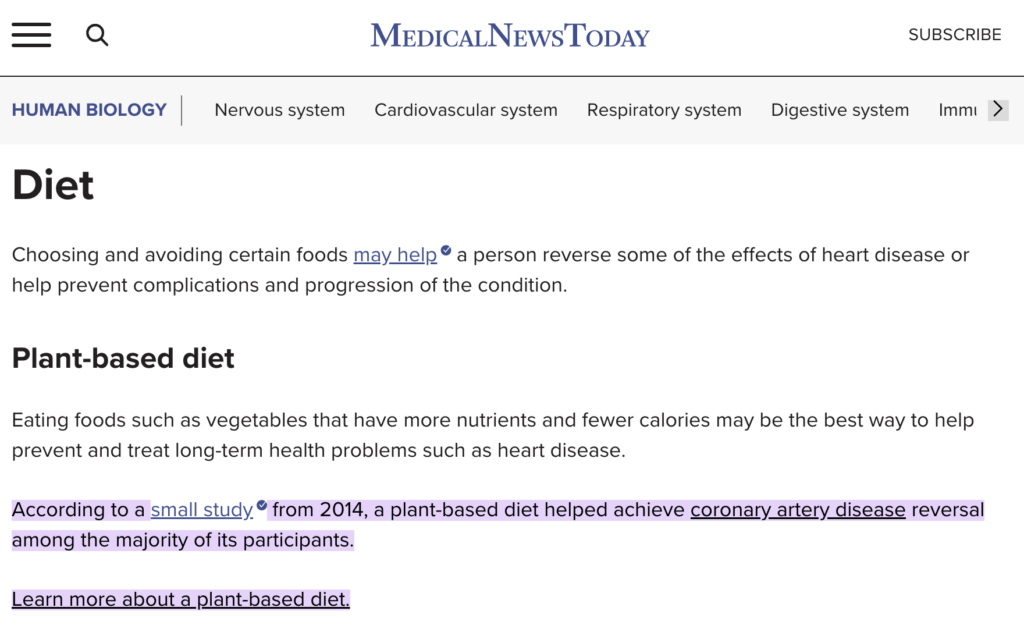
Section 3: Challenges to Changing Beliefs about Animal Products
This resistance stems from deeply ingrained beliefs about the role of animal products in a healthy diet.
Traditionally, animal products like meat, dairy, and eggs have been viewed as essential sources of protein, vitamins, and minerals.
Many people are hesitant to challenge this belief, fearing that removing these foods from their diet will lead to nutritional deficiencies.
Yet, research increasingly shows that a well-planned vegan diet can provide all the nutrients necessary for good health.
I also believe that no one wants to be wrong, and therefore, most people don’t want to think that their belief about animal products on health is wrong.
They try to hold on to any piece of information that reflects their beliefs and ignore other information that says otherwise, even when it’s the most updated information from credited sources.
It is not easy to admit that we’ve been wrong all of our lives and be willing to change our lifetime habits and ancestral culture.

Plant-based foods are rich in fiber, vitamins, minerals, and antioxidants, which are all beneficial for heart health and overall well-being.
Additionally, plant-based diets have been linked to lower rates of heart disease, cancer, and other chronic conditions.
How does a vegan diet improve energy levels?
A vegan diet can improve energy levels by providing a nutrient-rich intake of fruits, vegetables, whole grains, and legumes. These foods are packed with vitamins, minerals, and antioxidants that support overall health and vitality. Many people find they have more consistent energy and feel less sluggish after transitioning to a vegan lifestyle.
Section 4: Society’s Disconnect on Animal Welfare
Moreover, it’s striking how society reacts strongly against animal cruelty when it’s visible, such as someone mistreating a dog on the street.
Yet, there’s a stark contrast in how we collectively overlook the systemic abuse and killing of animals for food.
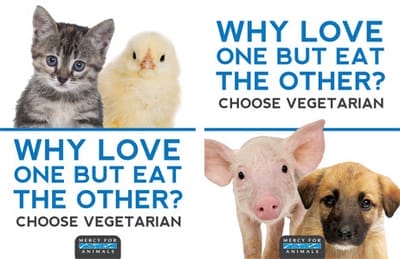
This inconsistency in our attitudes towards different species reflects a societal disconnect between our empathy for certain animals, like pets, and our indifference towards others, like farm animals.
Section 5: Uncovering the Reality of Animal Agriculture
The reality is that the vast majority of animals raised for food endure immense suffering throughout their lives.
They’re confined in overcrowded and unsanitary conditions, subjected to painful procedures like debeaking and tail docking without anesthesia, and ultimately slaughtered in often inhumane ways. But is there really a humane way to slaughter a being who wants to live?

Despite this, the suffering of these animals is largely hidden from public view, shielded by the walls of factory farms and slaughterhouses.
Have you heard of "Ag-Gag Law"?
As the name suggests, Ag-Gag laws seek to “gag” would-be whistleblowers and undercover activists from revealing animal abuses in animal agriculture. They were originally designed to prevent the public from learning about animal cruelty.
Section 6: Reflecting on Ethical Implications
This disconnect between our compassion for some animals and our apathy towards others highlights a moral inconsistency in our treatment of animals.
It raises important questions about the ethical implications of consuming animal products and the collective responsibility we have towards the welfare of all sentient beings.
Section 7: Advocating for Change
By bringing attention to this disparity, we can encourage society to confront the uncomfortable truths about animal agriculture and consider the ethical implications of our food choices.
Ultimately, it’s about fostering a more compassionate and empathetic relationship with all animals, regardless of their species.
I believe we all have this empathy, but our society and culture have influenced and brainwashed, if you will, us during our youth to believe it is the right thing to do.

Section 8: Sustainability Benefits of Veganism
Veganism offers significant sustainability benefits compared to traditional animal agriculture.
Animal agriculture is a major contributor to greenhouse gas emissions, deforestation, water pollution, and habitat destruction.
By choosing plant-based foods over animal products, individuals can reduce their carbon footprint and lessen the environmental impact of their diet.
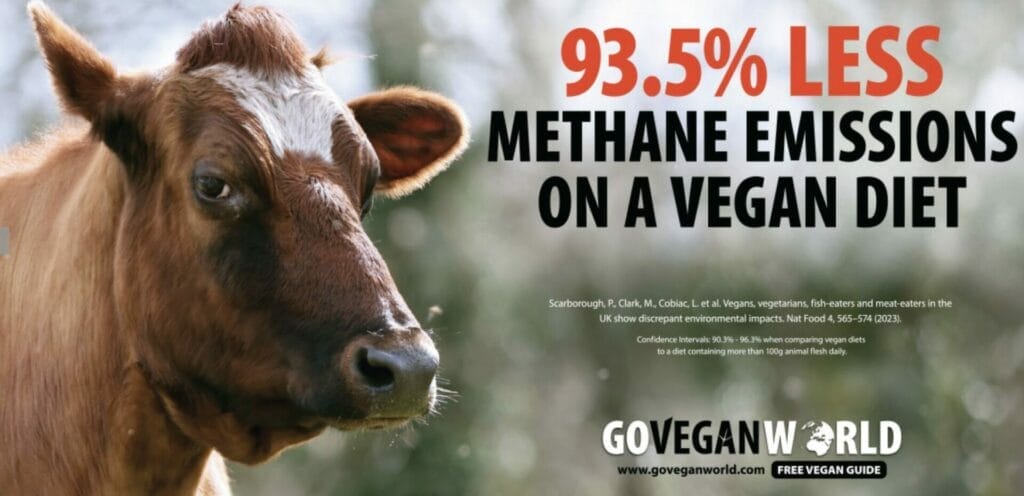
Plant-based diets require fewer resources, including land, water, and energy, to produce compared to diets rich in animal products.
Additionally, shifting towards plant-based agriculture can help preserve biodiversity and protect fragile ecosystems.
Overall, adopting a vegan diet is a more sustainable choice that helps safeguard the health of our planet for future generations.
Section 9: Veganism for a Better Future
Embracing veganism is not just about improving our health and reducing animal suffering; it’s also about creating a better future for ourselves and the planet.
By transitioning to plant-based diets, we can mitigate the environmental damage caused by animal agriculture and contribute to building a more sustainable and resilient food system.

Furthermore, veganism aligns with the growing awareness of ethical consumption and the desire to live in harmony with nature.
It offers a pathway towards a more compassionate and equitable world where the rights and well-being of all sentient beings are respected.
Section 10: Addressing Common Arguments
Some argue that animals are bred for consumption, therefore justifying their use as food.
However, breeding animals for food does not exempt us from the ethical responsibility to consider their well-being.
Animals raised for food experience suffering and deprivation throughout their lives, regardless of their intended purpose.

Regarding the argument that eating plants uses more land than eating animals, it’s essential to recognize the inefficiencies of raising animals for food.
Farm animals require vast amounts of land, water, and crops to feed them.
“Livestock accounts for nearly 80% of global agricultural land use, including grazing land and cropland used for animal feed. However, livestock only produces less than 20% of the world’s calories.” according to ourworldindata.org.
By choosing to eat plant-based foods directly, we can bypass these inefficiencies and make more efficient use of resources.
Is it true that vegans don’t contribute to better health or environmental sustainability?
Contrary to misconceptions, adopting a vegan lifestyle can contribute positively to health and environmental sustainability. A well-planned vegan diet can provide all necessary nutrients and is associated with lower risks of chronic diseases like heart disease and certain cancers. Additionally, reducing meat consumption can significantly lower carbon emissions and reduce water usage, benefiting the environment.
Section 11: Taking Action for Change
Choosing to embrace veganism is a proactive step towards making a tangible difference in the world.
It’s a personal choice that empowers individuals to take control of their health, contribute to animal welfare, and reduce their environmental footprint.
In today’s complex world, we often feel overwhelmed by societal issues like health, animal welfare, and environmental degradation.
We may find ourselves waiting for government regulations to improve animal welfare standards, for corporations to implement sustainable practices, or for societal norms to shift towards greater empathy and compassion.
However, by adopting a vegan lifestyle, we’re taking matters into our own hands and actively addressing these issues on a daily basis.
We’re saying no to the status quo of animal exploitation and environmental degradation, and instead, we’re choosing compassion, sustainability, and justice with every meal we eat.
By going vegan, an individual can save the lives of approximately 200 animals per year, according to estimates based on average consumption patterns.
That’s 200 sentient beings per year who are spared from a lifetime of confinement, deprivation, and suffering on factory farms, as well as from the cruelty of slaughterhouses.
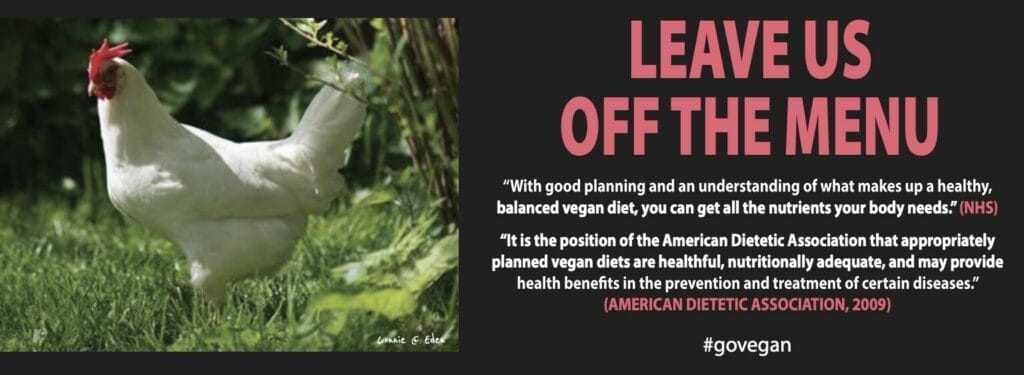
This choice isn’t about pointing fingers or waiting for someone else to make a change.
It’s about recognizing our individual power to create change. By making the simple choice to go vegan, one person can make a significant impact on the lives of thousands of animals, preventing them from experiencing abuse and exploitation from birth to death.
Just the opposite, not going vegan means you are choosing to create suffering and death for hundreds of animals per year!

Some may argue that animal welfare organizations should handle these issues.
But in fact, when we stop paying for these animals to be abused and slaughtered, we directly impact their existence, preventing them from being bred into a life of suffering.
Your money speaks loudly!
Making a Difference Now!
In a world where it’s easy to feel disillusioned or hopeless, choosing veganism offers a ray of hope and a path towards a better future.
It’s a small yet significant way to make a difference right now, without waiting for permission or approval from others.
The simple bliss of aligning our actions with our values brings a sense of fulfillment and purpose to our lives.
By taking back our power, the positive impact of vegan living is undeniable. We improve our own health and well-being while advocating for compassion, sustainability, and justice with every meal we eat.

It's a choice that speaks volumes about who we are and what we stand for, and it's a choice that has the power to create lasting change, one meal at a time.
What are the potential negatives of becoming vegan?
Some potential challenges of becoming vegan include the need for careful meal planning to ensure adequate nutrition, especially for vitamins like B12 and minerals like iron and zinc. However, it’s important to note that all eating habits, including our normal American diet, require meal planning to maintain balanced nutrition and health.
Veganism Resources: Support Your Journey
Here are some resources to provide guidance, inspiration, and support as you explore veganism.
Whether you’re looking for delicious plant-based recipes, practical tips for transitioning to a vegan lifestyle, or information on animal advocacy and environmental activism, these resources can help you on your journey:
- Documentaries and Films:
- “Earthlings” – A documentary exposing the exploitation of animals for food, clothing, entertainment, and medical research.
- “Cowspiracy” – Explores the environmental impact of animal agriculture and advocates for plant-based living.
- “Forks Over Knives” – Examines the health benefits of a plant-based diet and features delicious vegan recipes.
- “Gary Yourofsky – The Most Important Speech You Will Ever Hear” on Youtube.
- “30 days, 30 excuses” by Earthling Ed on Youtube.
- Books:
- “Eating Animals” by Jonathan Safran Foer – Investigates the ethical, environmental, and health implications of eating meat.
- “The China Study” by T. Colin Campbell and Thomas M. Campbell II – Presents scientific evidence supporting the health benefits of a plant-based diet.
- “How Not to Die” by Michael Greger, MD – Discusses the role of nutrition in preventing and reversing chronic diseases. Also offers a cookbook.
- “World Peace Diet: Eating for Spiritual Health and Social Harmony” by Will Tuttle Ph.D.
- Websites and Online Resources:
- The Vegan Society (vegansociety.com) – Provides information and resources for individuals interested in veganism, including recipes, guides, and articles.
- HappyCow (happycow.net) – A vegan and vegetarian restaurant guide that helps users find plant-based dining options worldwide.
- NutritionFacts.org – Offers evidence-based information on the health benefits of plant-based eating, curated by Dr. Michael Greger.
- Cookbooks:
- “Forks Over Knives: The Cookbook” – Features whole-food, plant-based recipes that are both nutritious and delicious.
- “Thug Kitchen: Eat Like You Give a F*ck” – Offers flavorful vegan recipes with a humorous and irreverent approach.
- “Oh She Glows” by Angela Liddon – Contains a collection of vegan recipes that are vibrant, nourishing, and easy to prepare.
- Community Support:
- Join local or online vegan communities to connect with like-minded individuals, share experiences, and get support on your vegan journey.
- Attend vegan festivals, potlucks, or cooking classes to discover new foods, meet fellow vegans, and learn more about plant-based living.

Navigating Vegan Choices: Beyond Health Benefits
Despite its health advantages, veganism is not immune to the pitfalls of processed or high-calorie foods.
Packaged vegan snacks and substitutes may contain refined sugars, unhealthy fats, and artificial additives. These additions can detract from the nutritional value of a vegan diet.
To ensure optimal health on a vegan diet, it’s crucial to prioritize whole, nutrient-dense foods. Beautiful and wholesome foods such as fruits, vegetables, legumes, nuts, and seeds.
By making conscious choices and incorporating a variety of colorful and wholesome ingredients into meals. You cancan enjoy the benefits of veganism while maintaining overall well-being.
What vegan foods contain complete protein?
Some vegan foods that contain complete protein include quinoa, tofu, tempeh, edamame, chia seeds, hemp seeds, and buckwheat. These foods provide all nine essential amino acids that the body cannot produce on its own.
Is it necessary to consume complete protein in a single food for a vegan diet?
No, it is not necessary to consume complete protein from a single food in one meal. Essential amino acids, which make up complete proteins, can be obtained from a variety of plant-based foods throughout the day. The body stores and utilizes these amino acids as needed to support muscle repair, immune function, and overall health.
One Step at a Time
Remember, transitioning to a vegan lifestyle is a journey, and it’s okay to take it one step at a time.
Finding delicious vegan recipes and exploring vegan alternatives to your favorite foods can make the transition easier and more enjoyable.
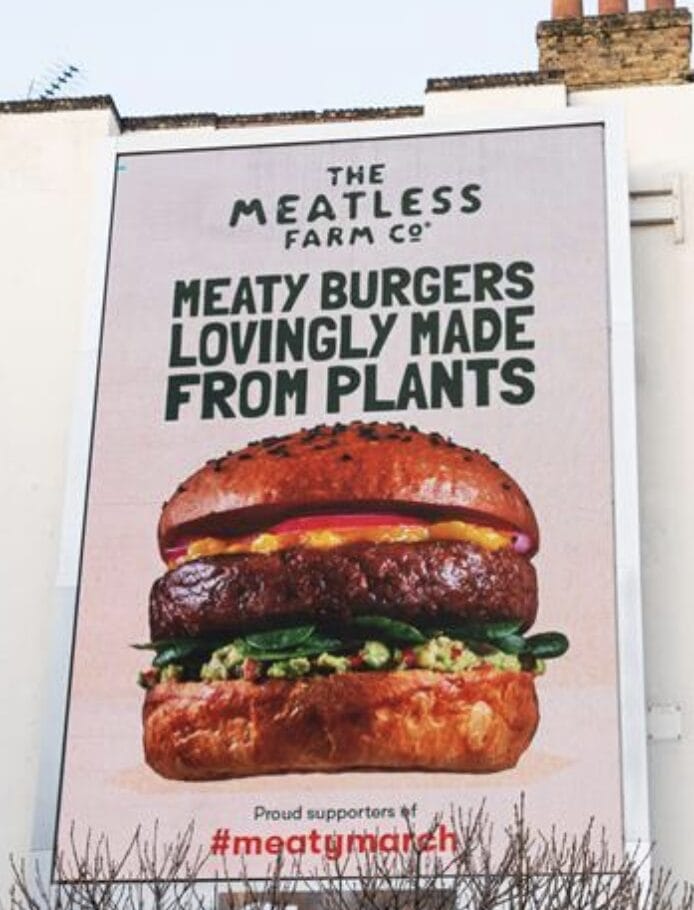
In Conclusion
By embracing veganism with mindfulness and balance, we not only improve our own health but also contribute to the well-being of animals and the planet.
Veganism is more than just a diet—it’s a compassionate way of living that aligns with our values and fosters positive change in the world.
Have you tried any good vegan food? Please comment below and let me know.
Here’s some delicious vegan food and recipes.
Save this Share this post

Photo Credits:
- https://www.peta.org/blog/paul-mccartneys-new-ad-peta/ ↩︎
- https://www.vegansociety.com/go-vegan ↩︎
- https://mercyforanimals.org/ ↩︎
- https://mercyforanimals.org/ ↩︎
- https://mercyforanimals.org/ ↩︎
- https://goveganworld.com/download-your-free-vegan-guide/ ↩︎
- https://goveganworld.com/download-your-free-vegan-guide/ ↩︎
- https://www.vegansociety.com/go-vegan ↩︎
- https://goveganworld.com/wp-content/uploads/2018/10/vegan-guide-website.pdf ↩︎
- https://goveganworld.com/wp-content/uploads/2018/10/vegan-guide-website.pdf ↩︎
- https://goveganworld.com/wp-content/uploads/2018/10/vegan-guide-website.pdf ↩︎
- https://www.vegansociety.com/go-vegan ↩︎
- https://meatlessfarm.com/ ↩︎



Leave a Reply